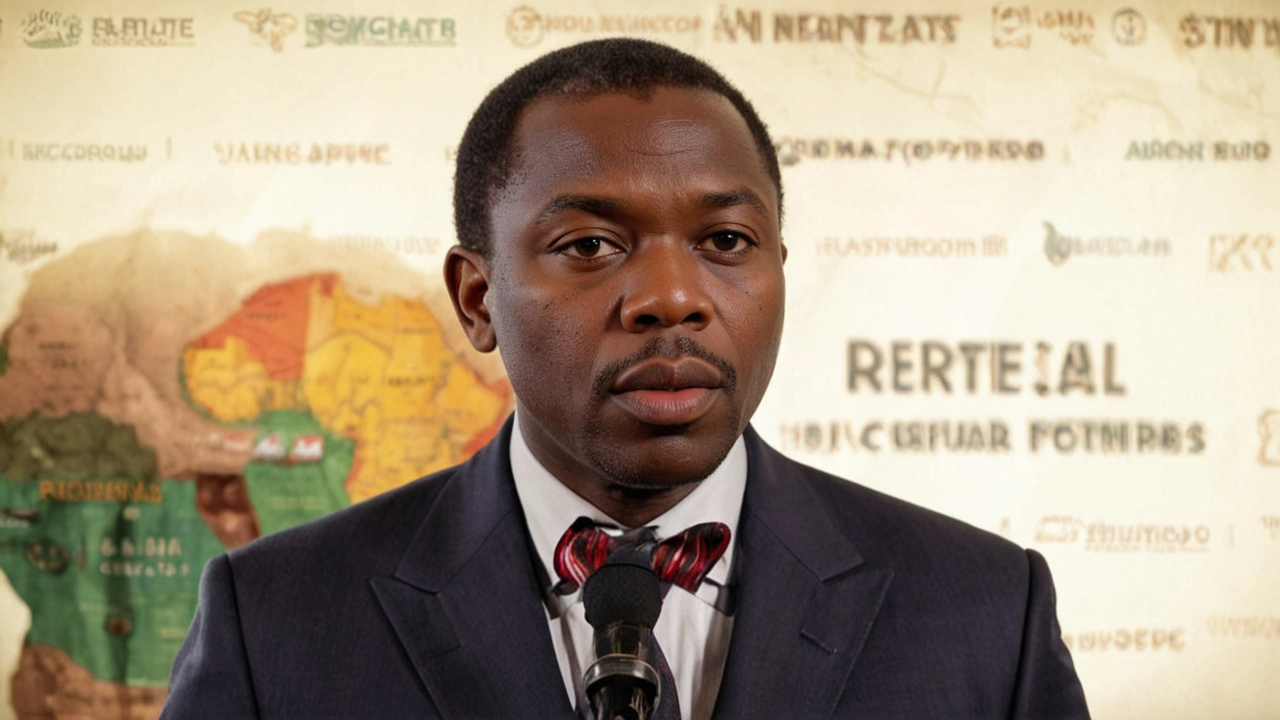Election of John Hlophe to Judicial Service Commission Sparks Controversy
The recent decision by the National Assembly to elect John Hlophe, an impeached judge, to the Judicial Service Commission (JSC) has ignited a firestorm of criticism from both political parties and civil society organisations. Hlophe, who is a member of the MK party, has a controversial history that many argue renders him unsuitable for such a significant role within the judicial system. The move has been described as not only unreasonable but also deeply irrational by various opposition figures and legal experts.
John Hlophe’s election has brought to light numerous concerns about the integrity and the future direction of South Africa's judicial appointments. Hlophe’s past, marred by allegations and an impeachment process, has put the spotlight on the decision-making criteria of the National Assembly. Critics highlight that electing someone with a tainted past to such a pivotal position contradicts the principles of fairness and justice, which are supposed to be upheld by the country's constitution. These accusations and calls for accountability mark the beginning of what could be a long and heated debate over judicial independence and ethical governance in South Africa.
Strong Condemnation from Opposition Parties
One of the loudest voices of dissent has come from the Democratic Alliance (DA), a major opposition party in South Africa. The DA has openly condemned Hlophe's election, deeming it 'neither reasonable nor rational.' Members of the party have expressed their dismay at the National Assembly's choice, arguing that it undermines public trust in the judiciary. A spokesperson for the DA stated that placing Hlophe in such a high-ranking judicial position sends a message that conduct and integrity no longer hold essential value. This sentiment resonates with many other political factions that are now rallying against the decision.
Opposition parties believe that Hlophe’s election endangers the credibility of the JSC, an institution that should embody impartiality and accountability. They argue that this appointment is a step back in the efforts to stabilize and secure a robust and trustworthy judiciary in South Africa. This controversy has not gone unnoticed by the public, with social media platforms and public forums abuzz with reactions and opinions on the matter.
Voices from Civil Society
Civil society organisations have also voiced their discontent. Judges Matter, a research and advocacy group, has been particularly vocal. Mbekezeli Benjamin, a research and advocacy officer for the group, has described the decision as inappropriate, stressing that Hlophe’s past actions disqualify him from representing the National Assembly on the JSC. Benjamin’s concerns echo a broader sentiment within civil society that holds ethics and integrity as non-negotiable pillars for anyone occupying a high office within the judiciary.
Other civil society organisations have rallied behind Judges Matter, reiterating the importance of a judiciary free from any form of corruption or unethical conduct. They highlight that Hlophe’s election could potentially tarnish the image of the judicial system, leading to a decrease in public confidence. For many, this situation underscores the need for more transparent and stringent vetting processes for judicial appointments to prevent individuals with questionable pasts from ascending to influential positions.
The Way Forward
The election of John Hlophe has, undoubtedly, plunged the National Assembly into a precarious situation, one that calls for immediate and decisive action. Many political analysts and legal experts suggest that this could be an opportunity for the National Assembly to revisit and possibly overhaul its criteria for judicial appointments. Implementing stricter guidelines could ensure that only those with impeccable records and unwavering ethics occupy such significant roles.
For now, the debate over Hlophe’s election rages on, with continued calls for a re-evaluation of the decision. As advocacy groups and opposition parties push for a reconsideration, it remains to be seen how the situation will unfold. One thing is certain: the election of John Hlophe has sparked a crucial conversation about the state of judicial appointments in South Africa, one that could lead to lasting changes in the way these decisions are made.
The hope is that this incident will serve as a catalyst for reform, prompting a closer look at the values and principles that should guide judicial appointments. In the meantime, the eyes of the nation remain fixed on the National Assembly as the public waits for a response to the growing outcry against Hlophe’s election.

